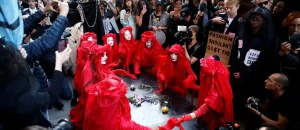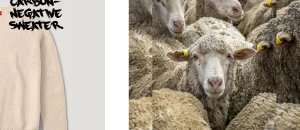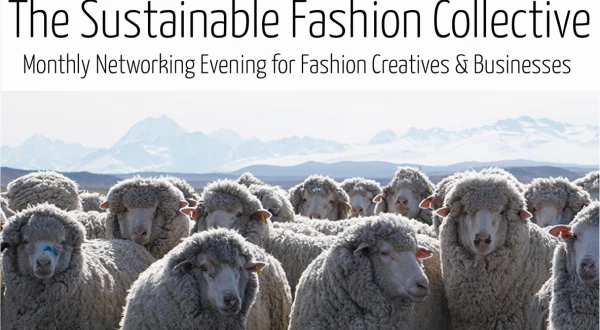Wool is one of the oldest fibres out there, used in clothing production for millennia and loved for its softness and warmth, properties that have come to be synonymous with luxury and comfort. It's also incredibly durable, lightweight and can be easily made waterproof, which has seen it hold its own in the performance wear market even up against synthetics and innovative materials in recent years.
However, the ethical and animal welfare issues associated with sheep farming have downgraded it among those seeking out sustainable and ethical fibres. Certifications and standards have often only served to mystify the true meaning of responsible wool.
In this Masterclass, we talk to those who consider sheep’s welfare an A* priority and learn exactly what goes into ensuring a wool fibre that you can truly call responsible. We break down the complexities of standards and certifications by speaking to experts in the field. We also take you through the end-to-end process of yarn and wool fabric production, from sheep farming, to fibre, to yarn, to garment, ensuring the proverbial wool won't be pulled over anyone's eyes should you want to work with this amazing material.
In this Masterclass, you will learn:
- What exactly do we mean by the term 'responsible wool'
- How sheep farmers are working to ensure the highest welfare standards today
- How to create value along your supply chain by cultivating fair working relationships
- About the history of wool production in a pre-industrial age
- What the core environmental issues are of working with cashmere
- About alternative exotic animal wool fibres like yak, Guanaco and mohair
- About responsible non-woven wool textiles suitable for the mass market
- What wool certifications there are, like the Responsible Wool Standard
- Vegan alternatives to wool fibres
- How to create a climate negative product that changes consumer behaviour
-
Wool In The Pre-Industrial East Anglian Textile Industry 1500s
with Valina Bowman-BurnsRead More...Summary
How do you make cloth into clothing without machines? The labour-intensive process involved men, women and children. The Tudors and Stuarts were certainly involved in some way in the cloth trade. Did they take on the risky trade of ‘clothier’ and become rich and powerful? Or were they the unacknowledged ‘spinsters’ working for pennies?
We heard from Valina Bowman-Burns at a recent series of seminars hosted by Essex county Council, and with research primarily from the Essex Record Office, to learn about the East Anglian pre-industrial textile trade. Here, we round up her presentation.
Valina covers terms that we use today that can help to better understand the impact of the industrial revolution, along with an explanation of what the roles in the traditional textile trade were and how they've changed. She also looks at the wool processing stages, and how they fit into Tudor England society. It is a fascinating subject, however, this is just a short snippet of research to easily dive in to and digest.
-
Producing Animal Fibres in Rural Artisanal Communities with The Good Growth Company
with Mandar JayawantRead More...Summary
The Good Growth Company's purpose is to build business systems that create value by design; holistic systems that are regenerative not extractive, will restore the environment, will revive communities, and deliver economic prosperity. They say that "growth has to be seen as growth in value, not scale".
Agriculture suffers acutely from the problems of old school growth, and here is where The Good Growth Company sees a big opportunity to create new value chains. In this lesson with co-founder Mandar Jayawant, we chat about the incredible business system he and his co-founder have developed over 10 years of trial and error to put community at the heart of the system rather than as an afterthought.
-
Creating Value Along The Supply Chain
with Benjamin ItterRead More...Summary
In this interview, we chat with business owners working in small teams to produce fair and sustainable fabrics, mostly organic and with very well established producer relationships, about how they love and live sustainably across the whole supply chain.
-
How is responsible wool farmed and processed?
with Stephanie SteeleRead More...Summary
Our panel discussion for May brought together two experts who work close to the source of wool fibres and understand exactly what 'responsible wool' really means. Bristol Cloth is a regeneratively and locally produced cloth made in collaboration with enterprises based around Bristol in the South West of England. Fernhill Farm provides the raw materials for Bristol Cloth via Fernhill Fibre, run by farmer Jen Hunter, to help re-educate and re-introduce responsibly produced wool into the market.
In this conversation, between two responsible wool businesses, you'll hear what makes wool responsible, the process of building local 'fibershed' communities, and whether localism has a place in the fashion market. This live Q&A was aired on Monday 22nd June 2020 as part of our monthly networking events series.
Babs Behan - Bristol Cloth and Botanical Inks
The local and regeneratively produced Bristol Cloth project was managed by Babs, who also founded natural dye business Botanical Inks. Both enterprises champion local production, low impact farming, textile education and building community.
Jen Hunter - Fernhill Farm and Fernhill Fibre
Fernhill Farm is a 160 acre farm, regeneratively managed by Jen and husband since 1997. Through a hybrid of British genetics, Andrew built up a flock of multipurpose sheep breeds that are now clipped for their flock to be used by Fernhill Fibre, embedding value and re-educating on the importance of wool.
Producing nutrient dense pasture-fed meat products, blade shearing and wool harvesting fine fibres in all the native colours whilst regenerating the land using Holistic Planned Grazing principles, Fernhill Fibre’s focus has always been the business to business supply chain.
-
Responsible Non-Woven Textiles For The Mass Fashion Market with Doppelhaus
with Martin BrambleyRead More...Summary
Learn about the entire process of developing non-woven textiles, from how it requires fewer steps, no additives and less water than conventional wool fabrics to the names of the sheep that provided the wool. By presenting natural coloured felt-like fabrics printed with pastel colours and metallic foil patterns, our interviewees have carved out a space for non-woven textiles with fashion-focussed aesthetics.
-
A guide to wool terms, production processes and specialty animal fibres [Downloadable]
with Stephanie SteeleRead More...Summary
Understanding terms associated with wool production from fibre to fabric will help when it comes to working with your producers, sourcing raw materials and finished textiles, and the aspects of manufacture that may require some sustainable and ethical solution updates. Use this glossary to take in the terminology, and build upon your knowledge.
-
The Arguments For A Climate-Positive UK Sheepskin Industry
with Mark RaymondRead More...Summary
Mark Raymond, owner of Organic Sheepskins and UK sheep farmer at Neville Farm, joins us to explain how he came to own this certified organic farm and run a certified organic tanning process producing sheepskin rugs and products for wide-ranging clients.
We dive straight away into the state of sheep farming in the UK, with insight into the high animal welfare standards and traceability of these byproduct fleeces. The farm is also 'carbon positive', and Mark explains what regenerative agriculture is for his farm, and the case for it being possible to help combat climate change. We also controversially look at veganism, and the affect of this lifestyle/ethical choice on production and marketing of leather alternatives, along with arguments for plant-based people being open to witnessing how Organic Sheepskins are benefitting the system.
This is a two part lesson: in part two, you can discover what the organic tanning process actually is, what makes it certifiably organic, and pricing structure for such products. These two lessons should give you a fresh and unique perspective on a side of the industry that is usually behind closed doors.
**Please be aware that the video and key takeaways contain descriptions of processes within the leather and meat industries.**
Interviews
Technical Tutorials
Fabrics: The Natural Characteristics and Eco Properties of Wool
Monday Jan 1st, 2018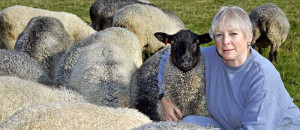
Weganool®: Vegan Wool Fabric Made From Weeds
Tuesday Jul 7th, 2020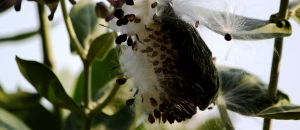
UPW: Responsible Sourcing and Production of Animal Fibres
Wednesday Jul 8th, 2020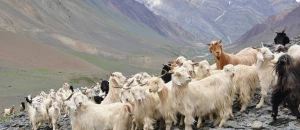
Past Events
Additional Reading
Does Bioengineering Hold the Key to Our Material Future?
Monday Feb 15th, 2021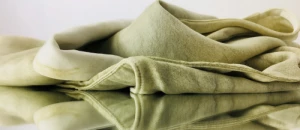
How To Fight Injustice With Fair Trade Fabrics
Monday Feb 8th, 2021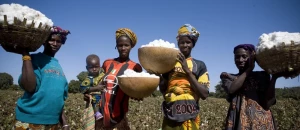
Highlights From The Virtual Oxford Real Farming Conference 2020 - Part Three
Monday Feb 1st, 2021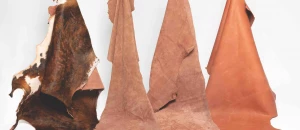
Indian Handwoven Khadi Fabrics For Clothing And Interiors
Tuesday Jan 5th, 2021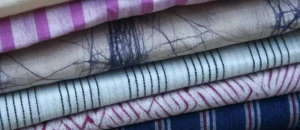
Building A British Fibreshed And Its Benefit For Fashion
Friday Jul 3rd, 2020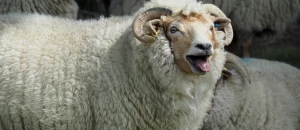
What is Regenerative Agriculture?
Thursday Jul 2nd, 2020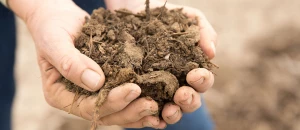
What is Fast Fashion doing to the planet, its people, and our state of mind?
Sunday Feb 9th, 2020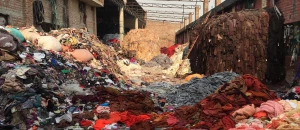
Piecemakers: London's Fashion Manufacturers
Friday Jan 24th, 2020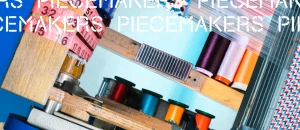
What is Fast Fashion and Why Is It Still So Popular?
Monday Jan 20th, 2020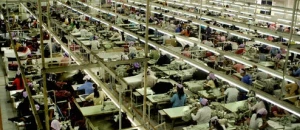
Sustainable Fashion Milestones from the 2010s
Monday Jan 13th, 2020